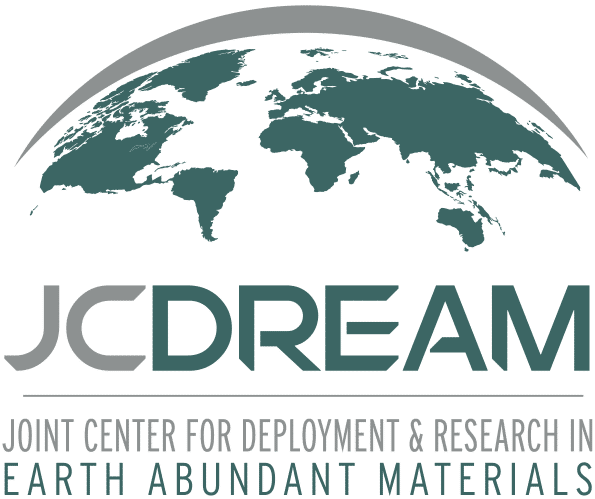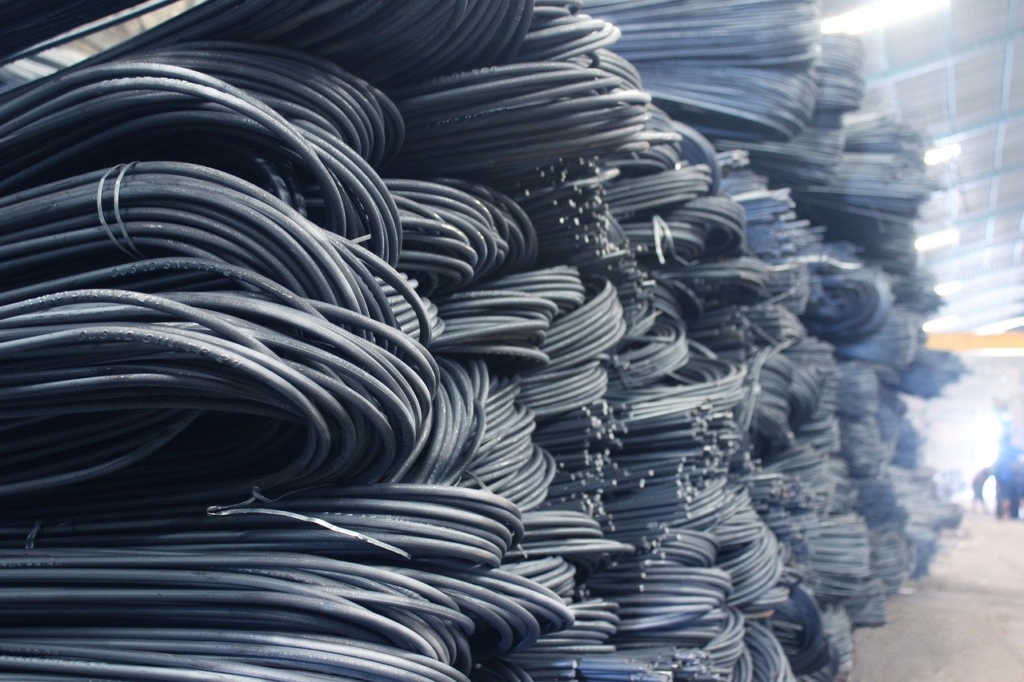Global climate initiatives are pushing for aggressive reductions in emissions and other contributors to climate change. Many of these goals are set for 2050 when the existing workforce will be nearing or already enjoying retirement. In the next few decades, there will be more demand than ever for designers, engineers, and technicians that can execute on sustainability initiatives.
Meeting climate goals will require major shifts away from legacy energy production methods in favor of renewables, electrification, and zero-carbon e-fuels. All these developing technologies rely on critical materials. As the shift to the clean energy future scales up, these already-scarce materials will continue to cause disruptions through worsening scarcity, shortages, and other supply chain issues. Knowing this, we should be educating students about existing alternatives and future alternatives that earth-abundant materials could provide. Materials education researcher Andreas Kohler says “The next generation of engineers and technicians need to be educated on materials science and criticality so that they are aware of and prepared for material shortages and how to design for sustainability and the environment.”
Speaking of generations, let’s talk about Generation Z. Gen Z is that next crop of professionals and consumers whose decisions and behaviors will hugely impact the future of the world. They are currently between 8-23 years old. This means that in 2050 they will be 38-53 years old, well into their careers, and leading the charge in designing for the environment. Gen Z knows that climate change is happening because of human activity, they demand sustainability in retail, they are the most ethnically and racially diverse generation, and they are poised to be the most well-educated generation yet. With this data and the clean energy future in mind, it is crucial that we begin reaching students in their formative educational years to create pathways to careers that will form the future of the environment.
The National Science Foundation has already been working to increase educational opportunities in Materials Science nationwide for over 15 years. Data from these programs have shown that “through the study of materials students gain a better understanding of fundamental concepts in physics, chemistry, biology, and mathematics by connecting those concepts with real-world applications.” By increasing student understanding in other STEM (science, technology, engineering, and math) fields, materials science modules and courses can improve the pipeline into post-secondary STEM education and careers.
While materials science resources will help educators to improve students’ understanding of these complex issues and help keep them interested in STEM careers, the looming problem is that the current cohort of scientists and engineers is simply not large enough to fulfill the workforce needs of the next decade, let alone 30 years. In engineering and manufacturing, an estimated 2.4 million jobs will remain vacant between now and 2028 due to this skills gap. This gap reflects declining interest in STEM fields, but it is also a symptom of today’s engineering educational system having left behind a huge well of untapped intellectual resources – underrepresented populations.
Underrepresented and minority communities are experiencing the impact of the critical materials issue two-fold. First, underrepresented populations are disproportionately affected by the challenges that come with critical materials – environmental impacts, human rights violations, supply volatility, and more. Secondly, underrepresented populations also have less access to the foundational educational resources and opportunities that would enable the pursuit of high–paying careers dedicated to solving these problems. Nearly every industry employs engineers, offering numerous career paths and some of the highest paying jobs outside of the medical industry. We need to ensure that everyone can access the advantages afforded by a STEM education, and we need all the help we can get to solve this problem of inequity.
JCDREAM is committed to conducting educational outreach concerning earth–abundant solutions and critical material issues to students and educators. We have collaborated with experts in materials education, workforce development, and research to accomplish these goals and develop resources and curriculum elements suitable for secondary education and beyond. Our collaborators Mel Cossette, Ann Avary, and Patricia Townsend are dedicated to the future of materials education and workforce training in Washington.
Cossette has over 25 years of experience in manufacturing education. She is the Executive Director of the National Resource Center for Materials Technology Education (MatEdU), housed at Edmonds College. Ann Avary is Director of the NW Center of Excellence for Marine Manufacturing & Technology for Washington State. Patricia Townsend is a Regional Extension Specialist for Washington State University. She works with stakeholders throughout the Pacific Northwest on issues related to renewable energy, ecosystem services, and green infrastructure. Together, they have gathered data and formulated a plan for incorporating materials science modules as early as secondary education. This collaboration also aims to address the equity issues that come along with critical materials challenges by ensuring better access to STEM education for underrepresented populations. By developing these educational resources in materials science and making sure that they are accessible to all, we can help to improve STEM understanding and retention system-wide and grow the pipeline of future designers, technicians, and engineers.
To learn more about JCDREAM’s efforts in education and workforce development, join us on December 8th for the latest installment of the Symposium Series. Our collaborators will introduce our educational arm, Materials Washington, and discuss the future of critical materials education in Washington State.

